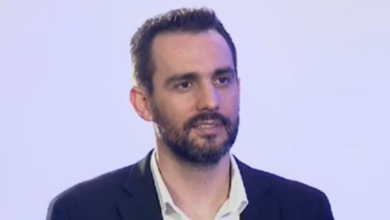
The new national strategy for introducing Artificial Intelligence into every sector of the economy in the next 5 years is considered by experts as a necessary document, but with challenges in implementation.
At the end of 2023, Prime Minister Edi Rama expressed for the first time the ambition to accelerate the technical process of integration into the European Union through ChatGPT, to replace the 'army of translators' in the approximation of legislation with automatic translation by Artificial Intelligence systems.
Despite questions about the regulatory and legal basis for including AI systems in this process, it appears that the government has moved forward with the plan and in August of this year, published a national strategy that envisions policies for the inclusion of Artificial Intelligence in all public service sectors in the next 5 years.
In the strategy, the government also claims to include AI modules in fiscal analysis to prevent fiscal evasion in Taxes and Customs and automate processes in public prosecutions.
The document aims to address issues such as the lack of a regulatory framework, limited technical and resource capacities, the low digital literacy of the population, and the gap between urban and rural areas in access to and use of advanced technologies.
For experts in the field, the drafting of these policies is seen as a necessity, but one that requires a lot of funds to invest in building infrastructure and increasing human capacity that will use these systems.
"On paper it is necessary, but how will it be implemented in practice?!" Erion Demiri, a cybersecurity expert and network engineer, told BIRN, adding that "these objectives are technically feasible and logical, the question is at what cost and how they will be implemented."
The implementation of the strategy, according to him, is related to various challenges, from technological infrastructure and human capacities, to ethical issues of population access to these systems.
“We don't have infrastructure, we have a GovNet that is very isolated, it needs to be expanded,” he says, adding that investment should also be made in the distribution of this infrastructure to connect parts of the population living outside Tirana.
The content of the strategic document is also appreciated by Igli Gjelishti, head of a company in the field of AI and developer of information systems, who told BIRN that it was "a necessary step and in line with European practices."
But, according to him, "it needs to be supplemented with more concrete commitments and objectives, both in terms of investments and in terms of concrete and measurable results."
According to Gjelishti, the document has addressed in concrete objectives one of the most important elements, that of human resources training, which according to him is 'the most delicate link in the process'.
He believes that the objectives of the strategy for building technological infrastructure are realistic and that if there is a will from the institutions, the difficulties are not insurmountable.
"Regarding technology, of course concrete investments are required, but at the current stage, with almost all public services digitized and a very large amount of information available, we have a good basis to start," said Gjelishti.
Both experts see the use of technology in the fight against corruption in the public prosecution sector or tax evasion as positive, but insist that the human element remains inevitable.
"There are systems that are based on AI and their analyses are much faster and more accurate to avoid evasion," says Demiri, adding that meanwhile "in the customs area, we haven't lacked the system, it's the people who command the system."
Gjelishti believes that "Artificial Intelligence goes one step further, replacing in some cases human judgment, which can be subjective or influenced by other factors."
But he also emphasizes that these are all tools and that for them to yield results “the right will is needed.” “The concrete objectives to use AI in public procurement or fiscal analysis are a good start, but now we must wait for implementation and concrete results,” he adds.
Experts also highlight the same global dilemmas related to ethical and cybersecurity issues in implementing this strategy.
According to Demir, the strategy places the human being at the center, being ethically correct, but still, questions remain and it remains to be seen what will happen to the labor market and how the infrastructure that will be built to implement these objectives will be geographically distributed.
"Here too, there is a risk that the use of AI will make the rich richer and further differentiate rural areas in access to technology," he warns, predicting that the new infrastructure will be built and operated generally in Tirana.
Reporter.al






















